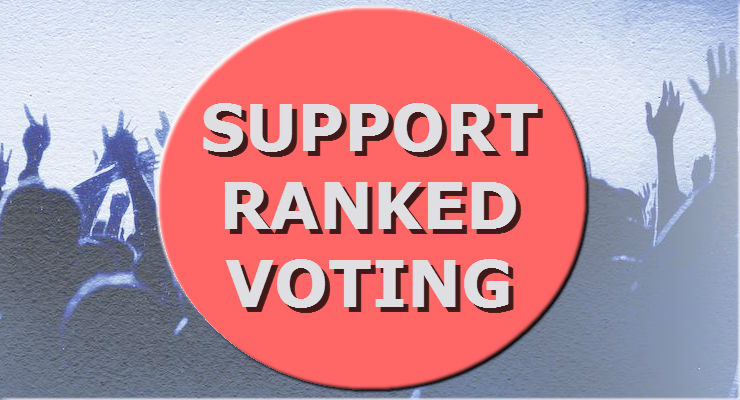 Maine became the first state to use the ranked voting system statewide starting only in 2018. Since then, a flurry of states and localities have been considering a switch to the unique system. For example, North Carolina has now demonstrated interest in moving towards ranked voting. A change to ranked voting and away from the universally used plurality voting system is beginning to be seen by many in both parties as a potential gamechanger. Vicki Ryder had this information on the shift towards ranked voting for North Carolina in News Observer. Here is an excerpt:
Maine became the first state to use the ranked voting system statewide starting only in 2018. Since then, a flurry of states and localities have been considering a switch to the unique system. For example, North Carolina has now demonstrated interest in moving towards ranked voting. A change to ranked voting and away from the universally used plurality voting system is beginning to be seen by many in both parties as a potential gamechanger. Vicki Ryder had this information on the shift towards ranked voting for North Carolina in News Observer. Here is an excerpt:
Another positive outcome of the use of RCV in the New York City election is that it brought more candidates into the race, since they didn’t have to fear being cast as ‘spoilers.’ It also brought more voters to the polls since they had candidates to choose from who more closely represented their values, without fear of voting for someone with little chance of winning. Voters knew that their voice would be heard all the way to the finish line, instead of being ‘wasted’ in a winner-take-all election.
So, rather than re-hash what went wrong in New York City, let’s look at what RCV elections would provide for voters here in North Carolina. Current North Carolina voting laws allow for candidates to win with a mere 30% of votes cast. That means 70% of the voters wanted someone else. That’s a problem for the voters, and for the politicians who rule with a weak base of support. With RCV, we’d have less rancor and more civility, with negative campaigning a non-starter, and ‘spoilers’ a relic of the past. We’d save money, increase voter turnout, have more choice and a greater voice… and a stronger democracy.
To learn more about efforts to bring RCV to North Carolina, visit BetterBallotNC.org, a statewide nonpartisan grassroots organization working to upgrade the way we vote in our state. Our next public information session will be held Aug. 9, and we invite you to join us.
Read the full article here. Also see related Democracy Chronicles articles like those on Voting Methods, Direct Democracy, and definitely check out our main Voting Methods section.
Leave a Reply